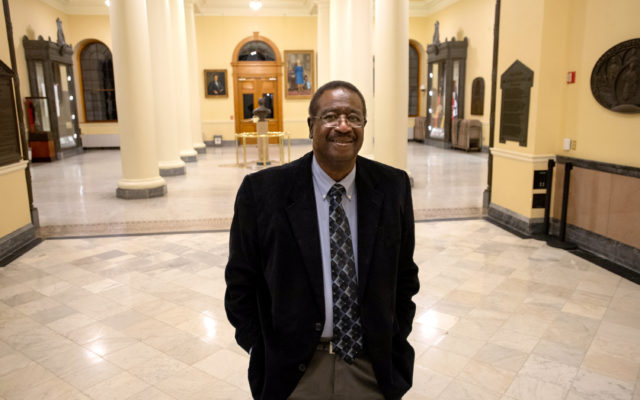
Maine’s attorney general warns against waiting on others to fight injustice
Rep. Evans part of MLK Day panel
By David Marino Jr., Bangor Daily News Staff
Maine’s attorney general and other state leaders highlighted the resonating message of Martin Luther King Jr. and the continued fight against inequality in the state during a virtual event on Monday.
While King primarily fought for the rights of Black people, the event focused on civil rights in a broader sense, with a particular focus on the rights of Maine’s Native American tribes. It was co-sponsored by the Greater Bangor Area NAACP and the University of Maine Alumni Association.
More than a year and a half after a Minneapolis police officer killed George Floyd, leading to a wave of protests calling for racial justice, many speakers emphasized that racial inequity and other forms of discrimination continue to be a scourge on Maine. The U.S. Bangor NAACP President Michael Alpert said he had not seen such a horrid “racist backlash” in the country since the early 1960s.
Maine Attorney General Aaron Frey praised recent efforts by the Maine Legislature to fight systemic racial inequality, including through the creation of the Permanent Commission on the Status of Racial, Indigenous and Maine Tribal Populations in 2019 and the passage of a proposal to assess the racial impact of new state legislation last year.
He noted that Maine’s laws have several instruments to address oppression, including a requirement that police forces have a trained civil rights officer, and a “strong” civil rights law that prohibits discrimination based on race, disability, religion, national origin, gender identity and sexual orientation.
Maine remains the whitest state in the nation but has seen a growing number of non-white residents in recent years.
But injustice continues, he noted. Frey’s office, for example, accused two Bangor teenagers of a hate crime in September after they allegedly covered a Pakistani-American man’s car with racist graffiti, including a call to kill all Black people.
Frey also said federally recognized tribes in Maine had seen “significant inequities.” Many see the federal 1980 Maine Indian Claims Settlement Act and its corresponding state legislation as a failure that stripped tribes of the self-governance afforded Native American tribes elsewhere in the U.S.
Penobscot Nation Tribal Ambassador Maulian Dana said that legislation changing the terms of the settlement act, sponsored by fellow panelist Rep. Rachel Talbot Ross, D-Portland, would help right that historical wrong. All the Wabanaki tribes in Maine support it, she said.
Frey said Mainers should learn from King not to fight injustice passively, but to play an active role in stopping it.
“Don’t wait for somebody else to do it,” Frey said. “Don’t wait for me to do it, don’t wait for the governor to do it. Get out and effect the change you want to see.”
Rep. Richard Evans, D-Dover-Foxcroft, said that King recognized racial equality could not be achieved without “radical structural changes” within society. Evans, who was elected in 2020, is just the fifth Black member of the Maine Legislature and the first Democrat in 30 years to represent Dover-Foxcroft.
He said a significant part of dismantling racism was making sure that new generations did not see a “sugar-coated” version of America’s history. Otherwise, those injustices could be repeated, he said.
“We have things in our history across the board that are shameful,” Evans said. “It is absolutely imperative that we tell the truth about what happened.”
Ross also called for the passage of the federal John R. Lewis Voting Rights Advancement Act.
The measure, which would restore previous requirements that states with histories of voting rights violations receive federal approval before changing their voting laws, has passed the U.S. House but not the Senate. Maine Sen. Angus King voted to advance the bill in November 2021, while Sen. Susan Collins voted with fellow Republicans against moving it forward.
“Without the right to vote, we have no democracy,” Ross said.